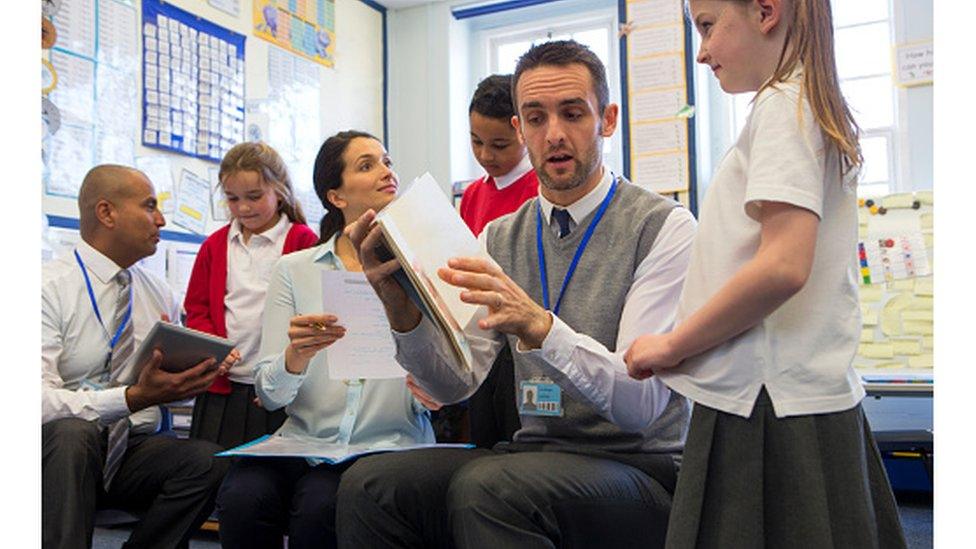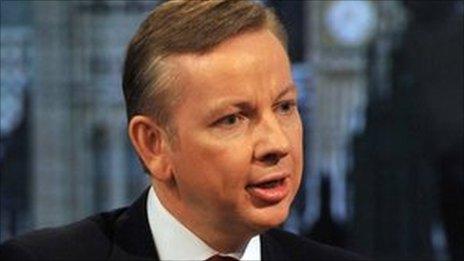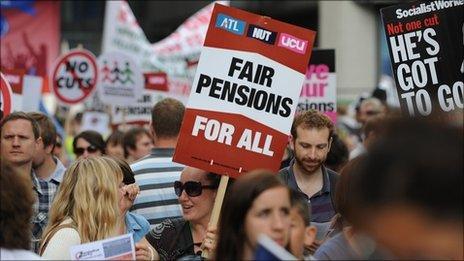Gove applauds growth in academies
- Published
Michael Gove: 'I am a parent, I know I would never accept second best for my child'
More than 40% of secondary schools in England are now or about to become academies, according to figures from the Conservatives.
Education Secretary Michael Gove, speaking at his party's annual conference, said this was bringing "higher standards all round".
Academies are now attended by nearly 1.2 million pupils, said Mr Gove.
But the NASUWT teachers' union attacked Mr Gove's education changes and announced the date for a strike ballot.
'Race for prosperity'
Mr Gove told conference delegates in Manchester that there are now 1,300 schools with academy status - attended by about one in seven of the pupils in the state system.
"When we came to power there were just 200 academies across the country. There are now more than 1,300. One thousand have opened in the last year," he said.
"They benefit from longer school days, smaller class sizes, better paid teachers, more personalised learning, improved discipline and higher standards all round."
Academy status means that schools are outside of local authority control and are directly funded by the government.
Mr Gove told the conference that improving school standards in England was vital in the "global race for prosperity" against the ambitions of countries such as China.
He also said that the school system need to be changed to tackle the "divide in education between rich and poor" - and he highlighted the "iron-clad link" between illiteracy and criminality.
'Ideological fervour'
But the NASUWT general secretary Chris Keates attacked his education policy as being motivated by "ideological fervour".
She said the coalition government's education plans were "driven more by the desire to create a free market and lining the pockets of business than ensuring that all children have the highest standards of education".
The teachers' union also announced that it would be holding a strike ballot of members between 4 to 17 November - under the campaign of Standing up for Standards.
This will in part be a strike ballot over changes to teachers' pensions - and the timing of the ballot could mean that the NASUWT joins other public sector workers in a planned day of protests on 30 November.
Head teachers have already announced plans for a strike ballot over pensions for this term.
The ATL teachers' union also challenged the coalition's plans for expanding the number of academies - saying that it would centralise control in the hands of government.
"On one hand his coalition government is espousing localism and giving local people control over their schools, but at the same time, as Secretary of State for Education, Mr Gove is directly responsible for over 1,000 schools now that he has removed them from local authority control," said Martin Freedman, the ATL's head of pay, conditions and pensions.
"If parents want to make a complaint about their child's school Mr Gove is going to be incredibly busy," he said.
- Published7 May 2016

- Published1 September 2011

- Published22 September 2011
